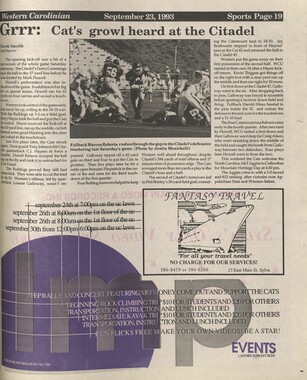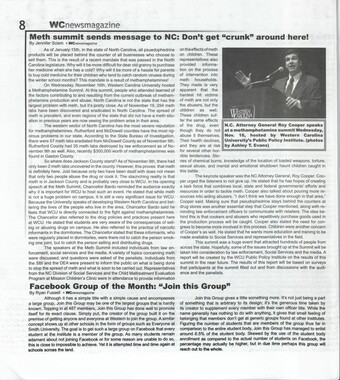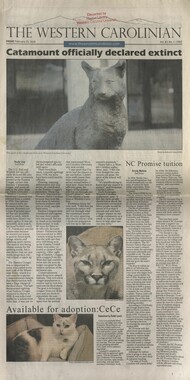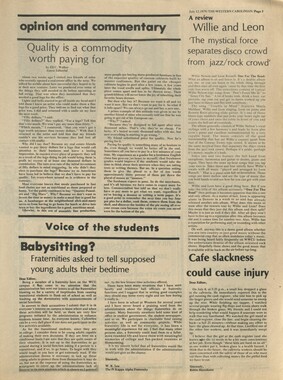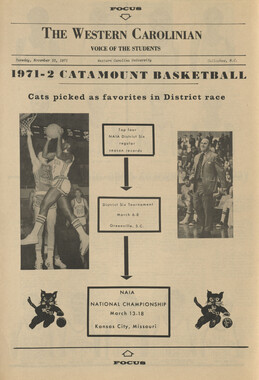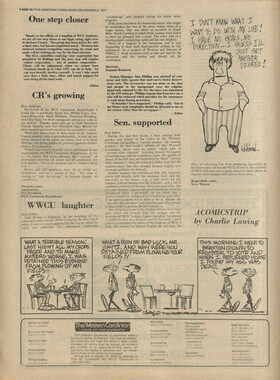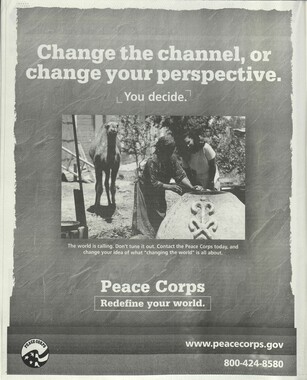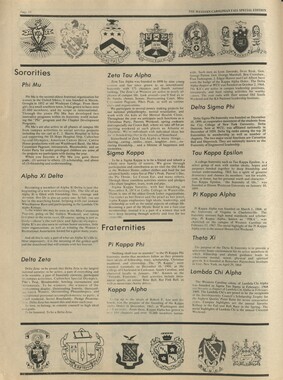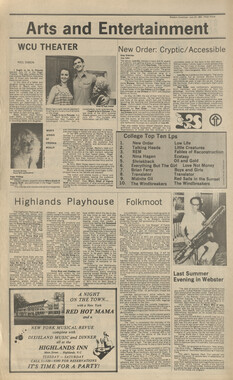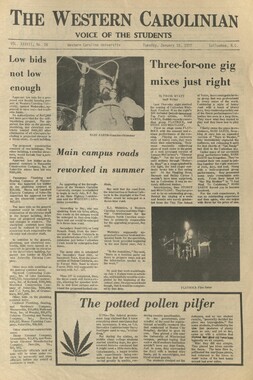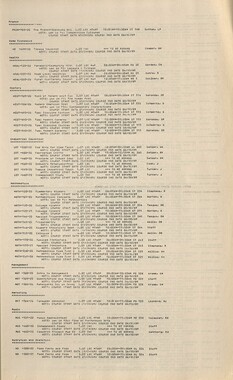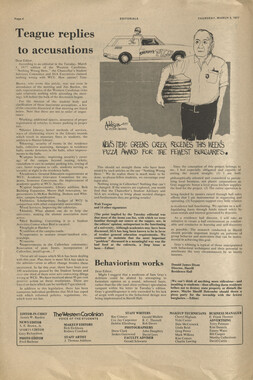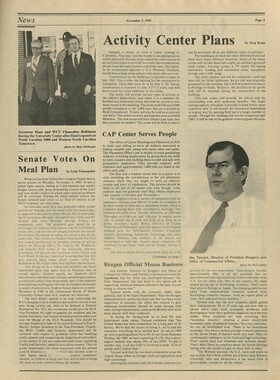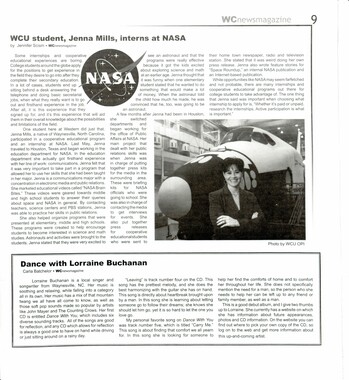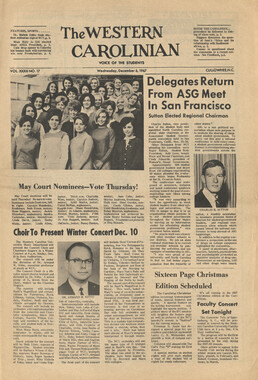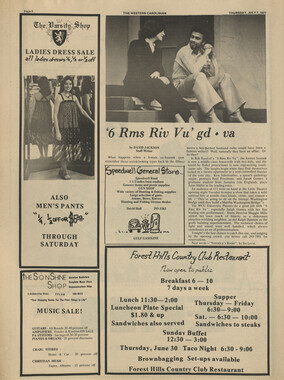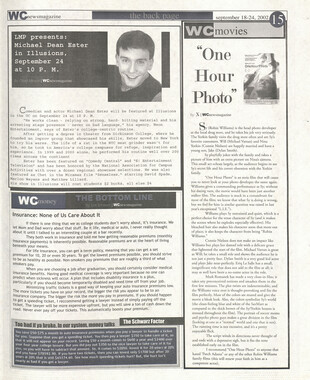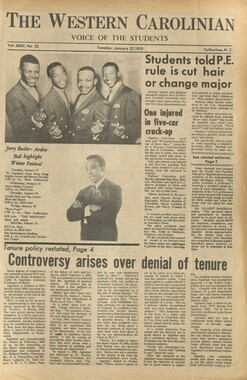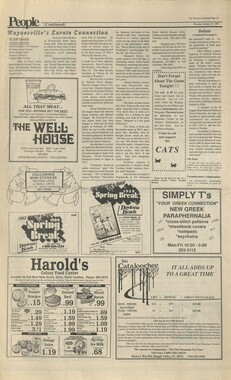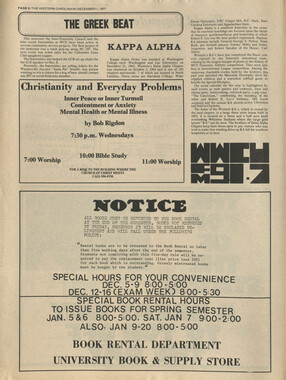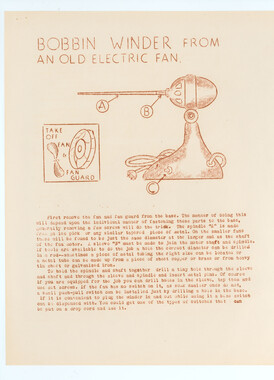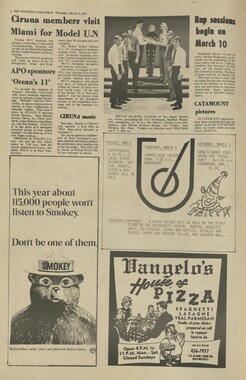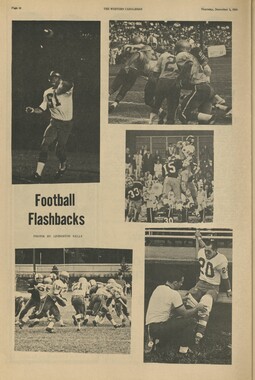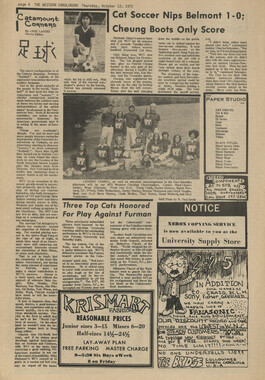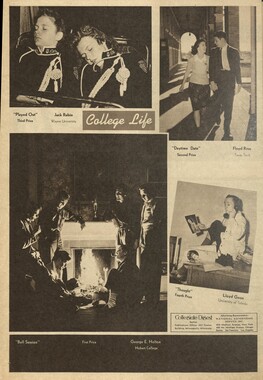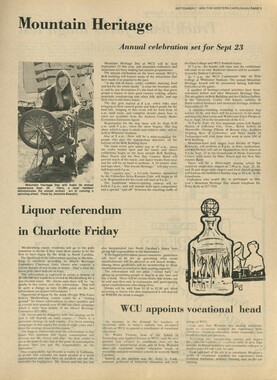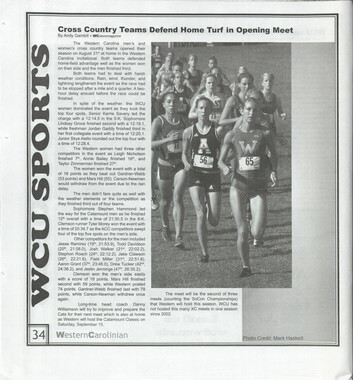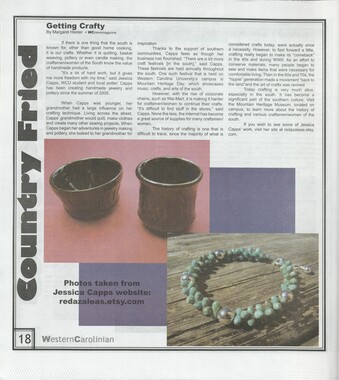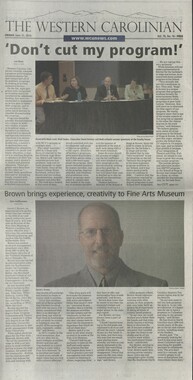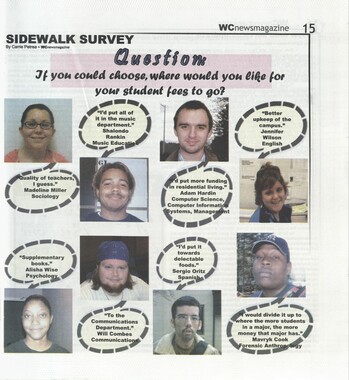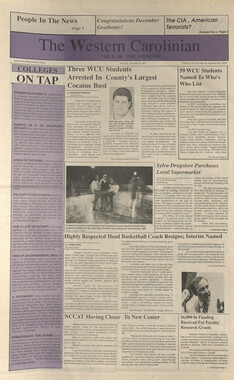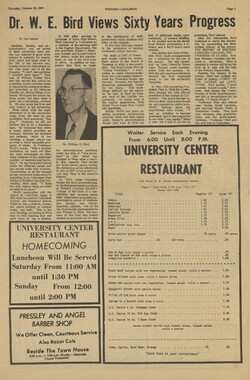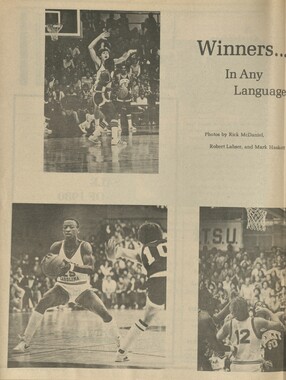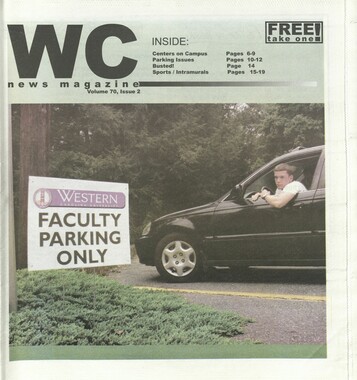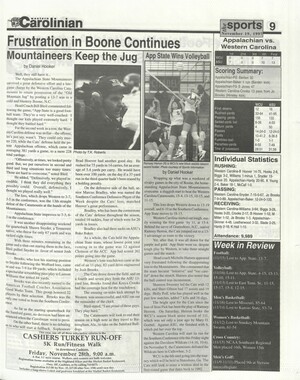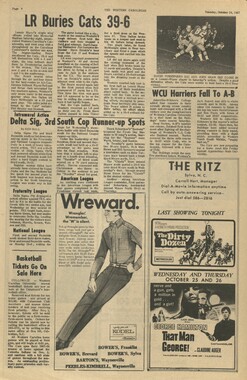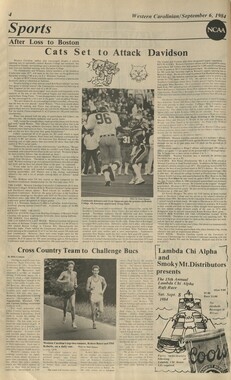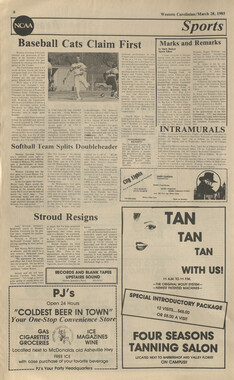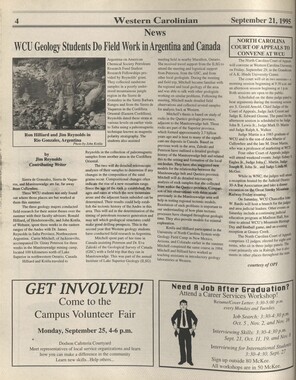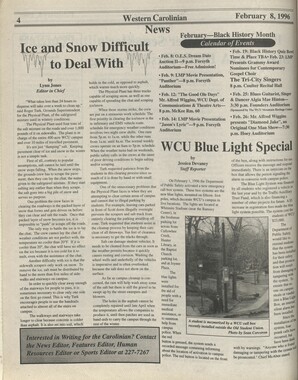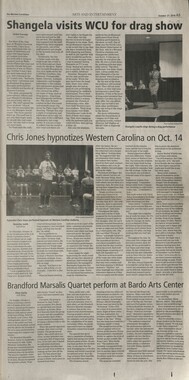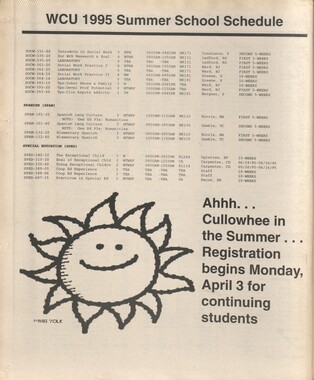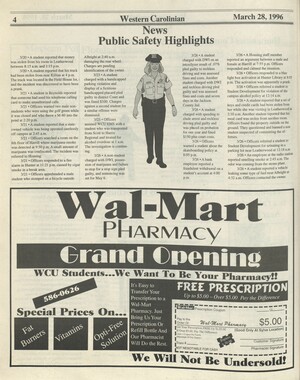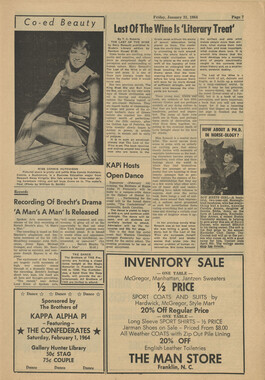Western Carolina University (21)
View all
- Canton Champion Fibre Company (2308)
- Cherokee Traditions (291)
- Civil War in Southern Appalachia (165)
- Craft Revival (1942)
- George Masa Collection (137)
- Great Smoky Mountains - A Park for America (3080)
- Highlights from Western Carolina University (422)
- Horace Kephart (973)
- Journeys Through Jackson (159)
- LGBTQIA+ Archive of Jackson County (89)
- Oral Histories of Western North Carolina (318)
- Picturing Appalachia (6617)
- Stories of Mountain Folk (413)
- Travel Western North Carolina (153)
- Western Carolina University Fine Art Museum Vitreograph Collection (129)
- Western Carolina University Herbarium (92)
- Western Carolina University: Making Memories (738)
- Western Carolina University Publications (2491)
- Western Carolina University Restricted Electronic Theses and Dissertations (146)
- Western North Carolina Regional Maps (71)
- World War II in Southern Appalachia (131)
University of North Carolina Asheville (6)
View all
- Allanstand Cottage Industries (62)
- Appalachian National Park Association (53)
- Bennett, Kelly, 1890-1974 (1463)
- Berry, Walter (76)
- Brasstown Carvers (40)
- Carver, George Washington, 1864?-1943 (26)
- Cathey, Joseph, 1803-1874 (1)
- Champion Fibre Company (233)
- Champion Paper and Fibre Company (297)
- Cherokee Indian Fair Association (16)
- Cherokee Language Program (22)
- Crowe, Amanda (40)
- Edmonston, Thomas Benton, 1842-1907 (7)
- Ensley, A. L. (Abraham Lincoln), 1865-1948 (275)
- Fromer, Irving Rhodes, 1913-1994 (70)
- George Butz (BFS 1907) (46)
- Goodrich, Frances Louisa (120)
- Grant, George Alexander, 1891-1964 (96)
- Heard, Marian Gladys (60)
- Kephart, Calvin, 1883-1969 (15)
- Kephart, Horace, 1862-1931 (313)
- Kephart, Laura, 1862-1954 (67)
- Laney, Gideon Thomas, 1889-1976 (439)
- Masa, George, 1881-1933 (61)
- McElhinney, William Julian, 1896-1953 (44)
- Niggli, Josephina, 1910-1983 (10)
- North Carolina Park Commission (105)
- Osborne, Kezia Stradley (9)
- Owens, Samuel Robert, 1918-1995 (11)
- Penland Weavers and Potters (36)
- Roberts, Vivienne (15)
- Roth, Albert, 1890-1974 (142)
- Schenck, Carl Alwin, 1868-1955 (1)
- Sherrill's Photography Studio (2565)
- Southern Highland Handicraft Guild (127)
- Southern Highlanders, Inc. (71)
- Stalcup, Jesse Bryson (46)
- Stearns, I. K. (213)
- Thompson, James Edward, 1880-1976 (226)
- United States. Indian Arts and Crafts Board (130)
- USFS (683)
- Vance, Zebulon Baird, 1830-1894 (1)
- Weaver, Zebulon, 1872-1948 (58)
- Western Carolina College (230)
- Western Carolina Teachers College (282)
- Western Carolina University (2008)
- Western Carolina University. Mountain Heritage Center (18)
- Whitman, Walt, 1819-1892 (10)
- Wilburn, Hiram Coleman, 1880-1967 (73)
- Williams, Isadora (3)
- Cain, Doreyl Ammons (0)
- Crittenden, Lorraine (0)
- Rhodes, Judy (0)
- Smith, Edward Clark (0)
- Appalachian Region, Southern (3032)
- Asheville (N.C.) (1945)
- Avery County (N.C.) (26)
- Blount County (Tenn.) (195)
- Buncombe County (N.C.) (1680)
- Cherokee County (N.C.) (283)
- Clay County (N.C.) (556)
- Graham County (N.C.) (238)
- Great Smoky Mountains National Park (N.C. and Tenn.) (525)
- Haywood County (N.C.) (3573)
- Henderson County (N.C.) (70)
- Jackson County (N.C.) (4925)
- Knox County (Tenn.) (35)
- Knoxville (Tenn.) (13)
- Lake Santeetlah (N.C.) (10)
- Macon County (N.C.) (421)
- Madison County (N.C.) (216)
- McDowell County (N.C.) (39)
- Mitchell County (N.C.) (135)
- Polk County (N.C.) (35)
- Qualla Boundary (982)
- Rutherford County (N.C.) (78)
- Swain County (N.C.) (2185)
- Transylvania County (N.C.) (270)
- Watauga County (N.C.) (12)
- Waynesville (N.C.) (86)
- Yancey County (N.C.) (72)
- Aerial Photographs (3)
- Aerial Views (60)
- Albums (books) (4)
- Articles (1)
- Artifacts (object Genre) (228)
- Bibliographies (1)
- Biography (general Genre) (2)
- Cards (information Artifacts) (38)
- Clippings (information Artifacts) (192)
- Copybooks (instructional Materials) (3)
- Crafts (art Genres) (622)
- Depictions (visual Works) (21)
- Design Drawings (1)
- Digital Moving Image Formats (2)
- Drawings (visual Works) (185)
- Envelopes (101)
- Exhibitions (events) (1)
- Facsimiles (reproductions) (1)
- Fiction (general Genre) (4)
- Financial Records (12)
- Fliers (printed Matter) (67)
- Glass Plate Negatives (381)
- Guidebooks (2)
- Internegatives (10)
- Interviews (823)
- Land Surveys (102)
- Letters (correspondence) (1045)
- Manuscripts (documents) (618)
- Maps (documents) (177)
- Memorandums (25)
- Minutes (administrative Records) (59)
- Negatives (photographs) (6090)
- Newsletters (1290)
- Newspapers (2)
- Notebooks (8)
- Occupation Currency (1)
- Paintings (visual Works) (1)
- Pen And Ink Drawings (1)
- Periodicals (194)
- Personal Narratives (10)
- Photographs (12977)
- Plans (maps) (1)
- Poetry (6)
- Portraits (4568)
- Postcards (329)
- Programs (documents) (181)
- Publications (documents) (2444)
- Questionnaires (65)
- Relief Prints (26)
- Sayings (literary Genre) (1)
- Scrapbooks (282)
- Sheet Music (2)
- Slides (photographs) (402)
- Songs (musical Compositions) (2)
- Sound Recordings (802)
- Specimens (92)
- Speeches (documents) (18)
- Tintypes (photographs) (8)
- Transcripts (329)
- Text Messages (0)
- A.L. Ensley Collection (275)
- Appalachian Industrial School Records (7)
- Appalachian National Park Association Records (336)
- Axley-Meroney Collection (2)
- Bayard Wootten Photograph Collection (20)
- Bethel Rural Community Organization Collection (7)
- Blumer Collection (5)
- C.W. Slagle Collection (20)
- Canton Area Historical Museum (2110)
- Carlos C. Campbell Collection (462)
- Cataloochee History Project (64)
- Cherokee Studies Collection (4)
- Daisy Dame Photograph Album (5)
- Daniel Boone VI Collection (1)
- Doris Ulmann Photograph Collection (112)
- Elizabeth H. Lasley Collection (1)
- Elizabeth Woolworth Szold Fleharty Collection (4)
- Frank Fry Collection (95)
- George Masa Collection (173)
- Gideon Laney Collection (452)
- Hazel Scarborough Collection (2)
- Hiram C. Wilburn Papers (28)
- Historic Photographs Collection (236)
- Horace Kephart Collection (861)
- Humbard Collection (33)
- Hunter and Weaver Families Collection (1)
- I. D. Blumenthal Collection (4)
- Isadora Williams Collection (4)
- Jesse Bryson Stalcup Collection (47)
- Jim Thompson Collection (224)
- John B. Battle Collection (7)
- John C. Campbell Folk School Records (80)
- John Parris Collection (6)
- Judaculla Rock project (2)
- Kelly Bennett Collection (1482)
- Love Family Papers (11)
- Major Wiley Parris Civil War Letters (3)
- Map Collection (12)
- McFee-Misemer Civil War Letters (34)
- Mountain Heritage Center Collection (4)
- Norburn - Robertson - Thomson Families Collection (44)
- Pauline Hood Collection (7)
- Pre-Guild Collection (2)
- Qualla Arts and Crafts Mutual Collection (12)
- R.A. Romanes Collection (681)
- Rosser H. Taylor Collection (1)
- Samuel Robert Owens Collection (94)
- Sara Madison Collection (144)
- Sherrill Studio Photo Collection (2558)
- Smoky Mountains Hiking Club Collection (616)
- Stories of Mountain Folk - Radio Programs (374)
- The Reporter, Western Carolina University (510)
- Venoy and Elizabeth Reed Collection (16)
- WCU Gender and Sexuality Oral History Project (36)
- WCU Mountain Heritage Center Oral Histories (25)
- WCU Oral History Collection - Mountain People, Mountain Lives (71)
- WCU Students Newspapers Collection (1923)
- Western North Carolina Tomorrow Black Oral History Project (69)
- William Williams Stringfield Collection (2)
- Zebulon Weaver Collection (109)
- African Americans (390)
- Appalachian Trail (35)
- Artisans (521)
- Cherokee art (84)
- Cherokee artists -- North Carolina (10)
- Cherokee language (21)
- Cherokee pottery (101)
- Cherokee women (208)
- Church buildings (190)
- Civilian Conservation Corps (U.S.) (111)
- College student newspapers and periodicals (2012)
- Dams (108)
- Dance (1023)
- Education (222)
- Floods (63)
- Folk music (1015)
- Forced removal, 1813-1903 (2)
- Forest conservation (220)
- Forests and forestry (1198)
- Gender nonconformity (4)
- Great Smoky Mountains National Park (N.C. and Tenn.) (181)
- Hunting (47)
- Landscape photography (25)
- Logging (122)
- Maps (83)
- Mines and mineral resources (9)
- North Carolina -- Maps (18)
- Paper industry (38)
- Postcards (255)
- Pottery (135)
- Railroad trains (72)
- Rural electrification -- North Carolina, Western (3)
- School integration -- Southern States (2)
- Segregation -- North Carolina, Western (5)
- Slavery (5)
- Sports (452)
- Storytelling (243)
- Waterfalls -- Great Smoky Mountains (N.C. and Tenn.) (66)
- Weaving -- Appalachian Region, Southern (280)
- Wood-carving -- Appalachian Region, Southern (328)
- World War, 1939-1945 (173)
Western Carolinian (Volume 69 Number 04)
Item
Item’s are ‘child’ level descriptions to ‘parent’ objects, (e.g. one page of a whole book).
-
-
SPARC comes to WCU by Jennifer Wilkey | Wenewsmagazine We're not focusing on telling people not to drink, says Elizabeth Likis-Werle of Westerns Counseling Center; we're really targeting those folks that are at a higher risk of experiencing alcohol related consequences. Likis-Werle is the WCU Campus/Community Organizer for the newly instituted SPARC project, part of a larger national research project that focuses on high-risk drinking on | college campuses. Basically, SPARC, or the Study to Prevent Alcohol Related / Consequences, is a program designed to focus on preventing alcohol abuse and its far- reaching consequences. . ie ' Alcohol related consequences could be anything from injury, illness, getting sick, having hangovers, missing class, health-related consequences, sexual health, STDs, sexual assaults, getting in fightsall the things that seem to happen when alcohol is involved that might not have happened otherwise, Likis-Werle explains, even people tripping and falling down a flight of stairs because they've had too much to drinkthats an alcohol related consequence. There are ten universities involved in SPARC across North Carolina: five intervention schools and five comparison schools. WCU is one of the five intervention schools. The study, headed by a twelve-person research team at Wake Forest Universitys School of Medicine, has hired one full-time organizer at each intervention campus for the duration the study (Jan. 2004 through Dec. 2006). The main purpose of the Campus/Community Organizer Is Did you know? to create a partnership between campus and community members, which will in turn attempt to identify and 5Y : hon implement at least four management strategies unique to the drinking culture of that community. 51.5 % : Ee hae hws tre ce a man # The SPARC committee at Western began meeting regularly this past summer. It includes WCU staff and 43.8 oe reed ot students, as well as members of the Jackson County community, like landlords, neighbors of students, and 2 'e { ie law enforcement agents. 62.6% of students report drinking once a week or [High-risk alcohol consumption] really does affect everybody, even students that just want to hold an off- less in the past 30 days campus party, says Likis-Werle. I dont think some students are aware of the liability involved in providing 43% report the usual # of drinks they consume _ alcohol, especially to underage students. The social host liability laws say that if you provide alcohol to as more than four in an occasion someone and they later leave your house and get hurt or, worse, they hurt someone else, you can be held liable, she continues. Even students who choose not to drink are affected by high-risk alcohol consumption. In a recent SPARC survey, 50% of the students questioned reported having to take care of someone else who was drunk. That's a lot of time and energy spent on high-risk drinkers, Likis-Werle notes. One of the major tasks of this coalition will be to recommend strategies and solutions. Each of the five SPARC intervention schools is expected to implement three to four changes by the end of the study. Whether or not students become part of the solution, they will be affected by the outcome, she adds. This is the students chance to help rather than react down the road when they don't like the recommendations. Accordingly, Likis-Werle encourages more students to join the committee, including representatives from fraternities, sororities, and athletic groups, not just student government members and residential living staff. The committee wants to hear from students about what they think will or will not work: if particular groups are causing more problems than others, what obstacles they are up against when it comes to enforcement of regulations, etc, We want to help students solve issues they are coming up against in providing safety. For example, fraternities are expected to keep a guest list and monitor who comes and goes from their parties, but they have trouble getting security. When they do try to limit the number of people at their functions, fights break out because someone wants to get in. Many recent suggestions made to the coalition have been along the lines of a Tipsy Taxi or Safe Ride Program that would act as a designated driver and shuttle students home to keep them from driving. Other suggestions, however, have included focusing on underage drinking and possession in residence halls and keg registration. We're not trying to take away anyone's fun, says Likis-Werle. Even die hard drinkers can agree that they don't want anyone to get hurt, so we need to find common ground and think about how we can all have fun, be safe, and be smart about it. Anyone with suggestions or who is interested in joining the SPARC coalition can contact Elizabeth Likis- Werle at elikis@email.weu.edu for more information. | All statistics obtained from recent surveys conducted by Wake Forest University and the SPARC program. NOMAD calls for submissions Would you like to see your work in print? The editors of the NOMAD welcome student submissions in poetry, short stories, drama and non-fiction. This is an excellent opportunity for publication in a literary and art journal. The deadline for submission is Nov. 15, so don't delay. For more information and submission guidelines, go to our website at www.wcunomad.com. Eon Alden, Editor in Chief
Object
Object’s are ‘parent’ level descriptions to ‘children’ items, (e.g. a book with pages).
-
The Western Carolinian is Western Carolina University's student-run newspaper. The paper was published as the Cullowhee Yodel from 1924 to 1931 before changing its name to The Western Carolinian in 1933.
-
![hl_westerncarolinian_2004_[vol69_no04]_04.jpg](/media/w320/wcu_publications/hl_westerncarolinian_2004_[vol69_no04]_04.jpg)
![hl_westerncarolinian_2004_[vol69_no04]_04.jpg](/media/w1000h500/wcu_publications/hl_westerncarolinian_2004_[vol69_no04]_04.jpg)
![hl_westerncarolinian_2004_[vol69_no04]_01.jpg](/media/w320/wcu_publications/hl_westerncarolinian_2004_[vol69_no04]_01.jpg)
![hl_westerncarolinian_2004_[vol69_no04]_02.jpg](/media/w320/wcu_publications/hl_westerncarolinian_2004_[vol69_no04]_02.jpg)
![hl_westerncarolinian_2004_[vol69_no04]_03.jpg](/media/w320/wcu_publications/hl_westerncarolinian_2004_[vol69_no04]_03.jpg)
![hl_westerncarolinian_2004_[vol69_no04]_05.jpg](/media/w320/wcu_publications/hl_westerncarolinian_2004_[vol69_no04]_05.jpg)
![hl_westerncarolinian_2004_[vol69_no04]_06.jpg](/media/w320/wcu_publications/hl_westerncarolinian_2004_[vol69_no04]_06.jpg)
![hl_westerncarolinian_2004_[vol69_no04]_07.jpg](/media/w320/wcu_publications/hl_westerncarolinian_2004_[vol69_no04]_07.jpg)
![hl_westerncarolinian_2004_[vol69_no04]_08.jpg](/media/w320/wcu_publications/hl_westerncarolinian_2004_[vol69_no04]_08.jpg)
![hl_westerncarolinian_2004_[vol69_no04]_09.jpg](/media/w320/wcu_publications/hl_westerncarolinian_2004_[vol69_no04]_09.jpg)
![hl_westerncarolinian_2004_[vol69_no04]_10.jpg](/media/w320/wcu_publications/hl_westerncarolinian_2004_[vol69_no04]_10.jpg)
![hl_westerncarolinian_2004_[vol69_no04]_11.jpg](/media/w320/wcu_publications/hl_westerncarolinian_2004_[vol69_no04]_11.jpg)
![hl_westerncarolinian_2004_[vol69_no04]_12.jpg](/media/w320/wcu_publications/hl_westerncarolinian_2004_[vol69_no04]_12.jpg)
![hl_westerncarolinian_2004_[vol69_no04]_13.jpg](/media/w320/wcu_publications/hl_westerncarolinian_2004_[vol69_no04]_13.jpg)
![hl_westerncarolinian_2004_[vol69_no04]_14.jpg](/media/w320/wcu_publications/hl_westerncarolinian_2004_[vol69_no04]_14.jpg)
![hl_westerncarolinian_2004_[vol69_no04]_15.jpg](/media/w320/wcu_publications/hl_westerncarolinian_2004_[vol69_no04]_15.jpg)
![hl_westerncarolinian_2004_[vol69_no04]_16.jpg](/media/w320/wcu_publications/hl_westerncarolinian_2004_[vol69_no04]_16.jpg)
![hl_westerncarolinian_2004_[vol69_no04]_17.jpg](/media/w320/wcu_publications/hl_westerncarolinian_2004_[vol69_no04]_17.jpg)
![hl_westerncarolinian_2004_[vol69_no04]_18.jpg](/media/w320/wcu_publications/hl_westerncarolinian_2004_[vol69_no04]_18.jpg)
![hl_westerncarolinian_2004_[vol69_no04]_19.jpg](/media/w320/wcu_publications/hl_westerncarolinian_2004_[vol69_no04]_19.jpg)
![hl_westerncarolinian_2004_[vol69_no04]_20.jpg](/media/w320/wcu_publications/hl_westerncarolinian_2004_[vol69_no04]_20.jpg)
